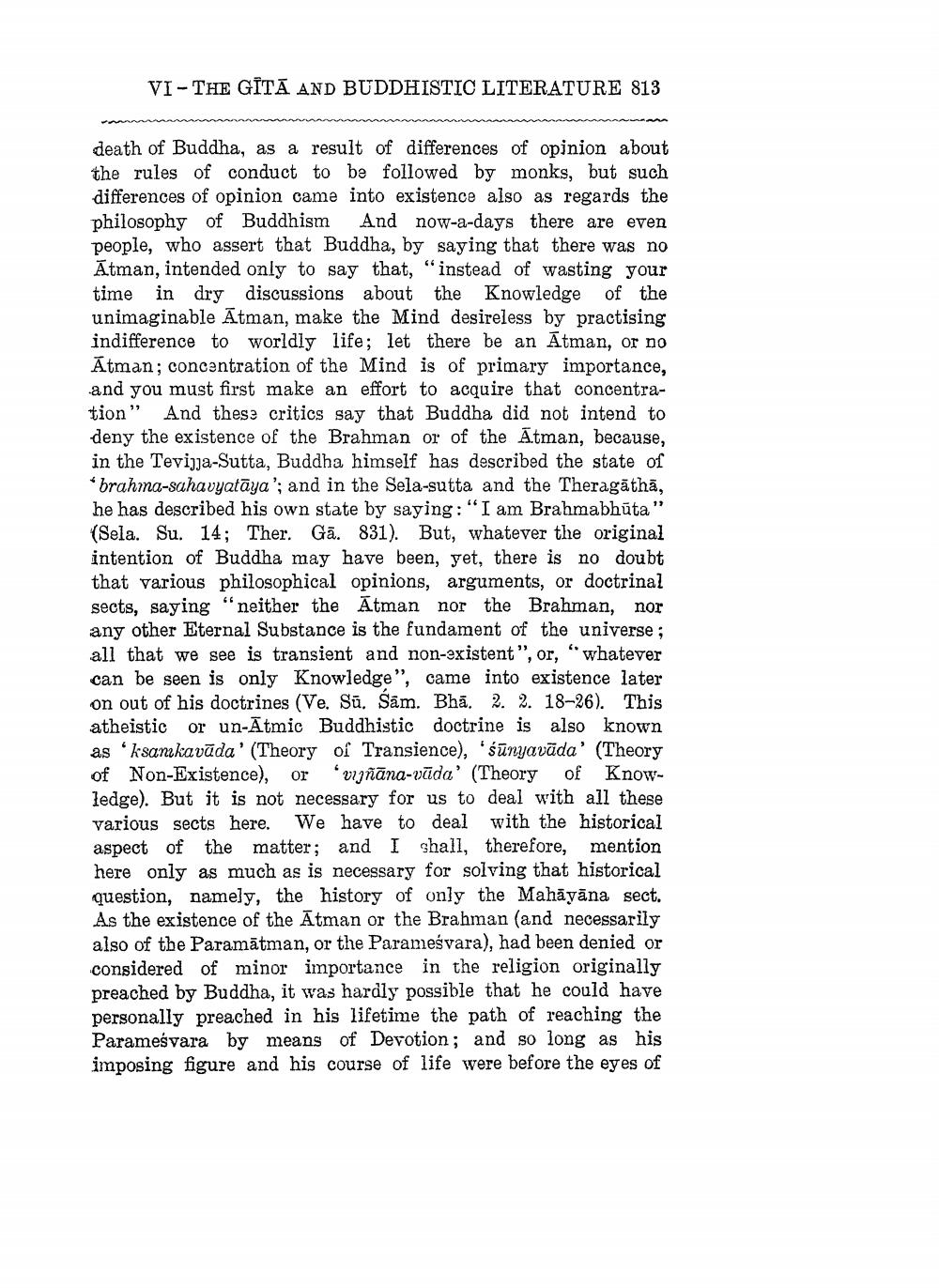________________
VI- THE GĪTĀ AND BUDDHISTIC LITERATURE 813
death of Buddha, as a result of differences of opinion about the rules of conduct to be followed by monks, but such differences of opinion came into existence also as regards the philosophy of Buddhism And now-a-days there are even people, who assert that Buddha, by saying that there was no Atman, intended only to say that, "instead of wasting your time in dry discussions about the Knowledge of the unimaginable Atman, make the Mind desireless by practising indifference to worldly life; let there be an Atman, or no Ātman; concentration of the Mind is of primary importance, and you must first make an effort to acquire that concentration" And these critics say that Buddha did not intend to deny the existence of the Brahman or of the Atman, because, in the Tevija-Sutta, Buddha himself has described the state of * brahma-sahavyatāya'; and in the Sela-sutta and the Theragāthā, he has described his own state by saying: "I am Brahmabhūta" (Sela. Su. 14; Ther. Gā. 831). But, whatever the original intention of Buddha may have been, yet, there is no doubt that various philosophical opinions, arguments, or doctrinal sects, saying "neither the Ātman nor the Brahman, nor any other Eternal Substance is the fundament of the universe ; all that we see is transient and non-existent", or, "whatever can be seen is only Knowledge", came into existence later on out of his doctrines (Ve. Sū. Säm. Bhā. 2. 2. 18-26). This atheistic or un-Atmic Buddhistic doctrine is also known as 'ksanıkavāda' (Theory of Transience), 'śūnyavāda' (Theory of Non-Existence), or viñana-vūda' (Theory of Knowledge). But it is not necessary for us to deal with all these various sects here. We have to deal with the historical aspect of the matter; and I shall, therefore, mention here only as much as is necessary for solving that historical question, namely, the history of only the Mahāyāna sect. As the existence of the Atman or the Brahman (and necessarily also of the Paramātman, or the Parameśvara), had been denied or considered of minor importance in the religion originally preached by Buddha, it was hardly possible that he could have personally preached in his lifetime the path of reaching the Parameśvara by means of Devotion; and so long as his imposing figure and his course of life were before the eyes of
M




